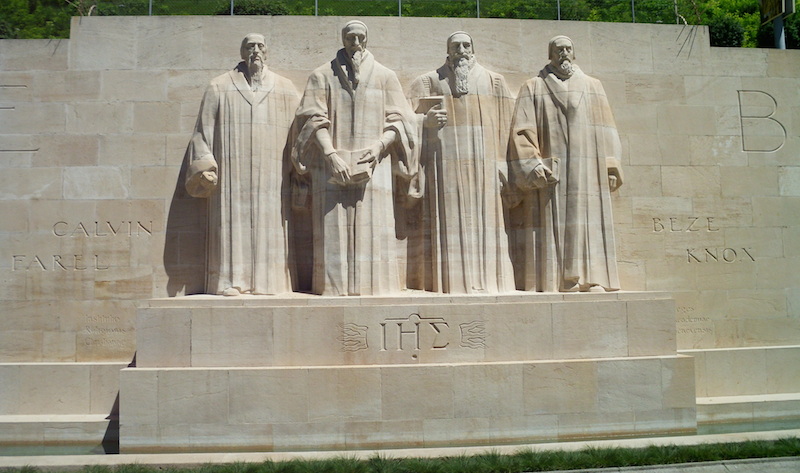Protestantism: Agreeing on essentials?


When Catholics critique the contradictory beliefs held in different parts of the Protestant world, we are often told that “Protestants agree on all the essentials”. A statement like this, of course, this begs two questions:
1. Which doctrines should be considered “essential” and which “non-essential”?
2. Who gets to make that categorization?
The second question is particularly important. Who gets the final say as to what is “essential” and what is “non-essential”? After all, what happens when two Protestants disagree on what is “essential”?
To pick an example from the dawn of the Reformation, Luther and Zwingli came into conflict concerning their respective understandings of the Eucharist, so much so that this ruptured their relationship. Could we still say that these two fathers of the Reformation agreed on “essentials”?
Are any of these essential?
Since I’ve heard this assertion so often, I thought I’d put together a quick post to share when someone next makes that claim. Here are ten crucial doctrines which are not universally accepted by all Protestant communities:
1. Sola Fide
Do works have some kind of role in our salvation? Or does it have a secondary role? Or do works play no role whatsoever?
2. Once Saved, Always Saved
Is it possible to lose one’s salvation?
3. Sola Scriptura
Is Scripture the sole authority or the sole infallible authority?
4. Baptism
Does Baptism do anything? Does it actually wash away sin or is it purely symbolic? Should infants be baptized or just dedicated?
5. Real Presence
What is the Eucharist? Is it just a symbol or is Jesus truly present in the elements?
6. Church leadership
Does the Church have any real, binding authority? How do we identify those who have authority and those who have not?
7. Spiritual Gifts
Did these cease with the death of the last apostle?
8. The Rapture
Will there be such a thing as the Rapture? Will there be one rapture or multiple raptures?
9. Soul Sleep
What happens to the soul when we die? Does it “sleep” until the Resurrection of the Body or is it “awake” with God in Heaven?
10. Authority of non-Pauline epistles
Do the non-Pauline epistles, such as the Epistle of James, apply to Christians or not?
Of course, many more examples could be included since, given the nature of Sola Scriptura, even those who belong to the same denomination, even the same congregation, can have a different matrix of beliefs.
In my list I didn’t even get into groups like Oneness Pentecostals who deny the Trinity, but regardless of this, I hope this post has successfully demonstrated the problem with the assertion with the statement that “Protestants agree on all the essentials”.
I guess the wrong Protestants put together the list of essentials just to confuse the opposition.
Is #10 really at question among mainline Protestants except in practice? Don’t all major denominations profess the inspiration of the general epistles even though they don’t believe most of what Hebrews or James says?
Probably not mainline. I wrote this list shortly after having had an extended conversation with a chap who believed that the non-Pauline epistles aren’t binding on Christians, so that was at the forefront of my mind. I’ve found the idea to be rather scarily popular among non-denominationals.
You’re right though, I probably should have picked something else for #10, perhaps Eternal Security and the possibility of losing one’s salvation?